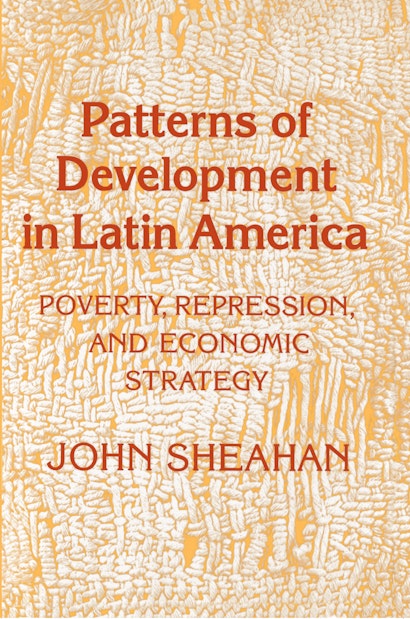In this major work an economist with long experience as an advisor in developing countries explores the conflict between market forces and political reform that has led straight into Latin America’s most serious problems. John Sheahan addresses three central concerns: the persistence of poverty in Latin American countries despite rising national incomes, the connection between economic troubles and political repression, and the relationships between Latin America and the rest of the world in trade and finance, as well as overall dependence. His comprehensive explanation of why many Latin Americans identify open political systems with frustration and economic breakdown will interest not only economists but also a broad range of other social scientists. This is “political economy” in the classical sense of the word, establishing a clear connection between the political and economic realities of Latin America.
"An ambitious attempt to analyze continuities and changes in contemporary Latin America. The book focuses on three questions: what accounts for persistently strong inequalities of Latin America; what are the main effects on Latin America of its relations with the rest of the world; and what relationship has there been in Latin America between the trends toward market-oriented economic systems and extreme political repression. Using both topical and country-oriented approaches, Sheahan ranges widely and sensitively over recent Latin American experiences with market capitalism, Marxist socialism, and various middle-road alternatives. He draws balanced, reformist conclusions—aimed both at Latin American leaders and those who shape U.S. policy. A wise and perceptive book."—Foreign Affairs
"Any social scientist writing a general book on a comparative theme in Latin America immediately confronts a series of problems—the passions aroused by the theoretical debates (in this case structuralism, monetarism, and dependency); the need to synthesize these theoretical insights with conflicting empirical research; the vast quantity of literature which has appeared since the 1960s; and the choice of which countries to concentrate on and examples to use. John Sheahan's excellent book shows how a skillful and judicious writer can cut through the theoretical and empirical research to produce an effective study of the recent economic history of Latin America."—International Affairs
"This is an excellent book, unequalled in the existing scholarly literature. It fits an unoccupied niche in the social science literature: a discussion focused on economic topics on their own merits which is continentally comprehensive, historically informed, up to date in intellectual sophistication and contemporaneity, and exceptionally wellwritten."—Jorge I. Dominguez, Harvard University

